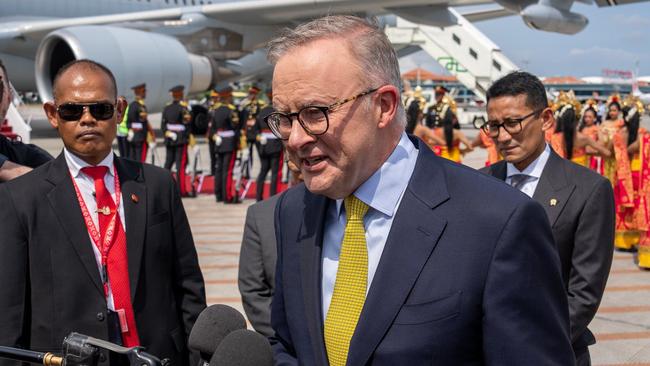
And it is to the government’s credit that this has come about without Canberra making any compromise or concession on all the things that most annoy Beijing about Australia.
Albanese, Foreign Minister Penny Wong and Defence Minister Richard Marles have got both the substance and the tone right in their approach to China. They want to “stabilise” the relationship with China, not reset it or bring it back to a deceiving normal of years gone by which, in Wong’s words, was possible only in a very different world from today with a very different style of Beijing government.
The Prime Minister says his government will not be changing positions, nor offering concessions, in order to normalise relations.
Such normalisation is in the interests of both Australia and China. There is much normal, day-to-day business to conduct. And a calm atmosphere is better than a febrile one.
There is one small danger in the meeting. Albanese, and his ministers, must neither engage in, nor fall for, exaggerated rhetoric about the relationship.
Dictatorships can turn good relations on and off like a tap. A democratic government must take its people with it. And it needs to explain international relations honestly, certainly calmly, but honestly.
When the government rightly tells the Australian people that they are living in the most dangerous strategic circumstances since World War II, that is overwhelmingly because of Beijing’s military build-up and aggressive disposition.
China’s outgoing Premier, Li Keqiang, said China was willing to meet Australia half way.
If that’s a diplomatic platitude, that’s OK, the normal sort of diplo-speak which surrounds international affairs. If it means in substance that Australia should advance half way along the road that Beijing has set out for it, then it’s completely unacceptable.
Beijing’s disagreements with Canberra are not trivial or ephemeral. They are structural and, from Australia’s point of view, non-negotiable.
We can’t accept trade sanctions, abrogate the US alliance, accede to Beijing’s illegal occupation of South China Sea islands, acquiesce to interference in our politics, or theft of our intellectual property, nor to Beijing owning our critical infrastructure or establishing a military base in the South Pacific, and so on.
Acknowledging these differences, we can nonetheless have a more stable and professional relationship.




That Anthony Albanese will meet Chinese President Xi Jinping is constructive and long overdue.